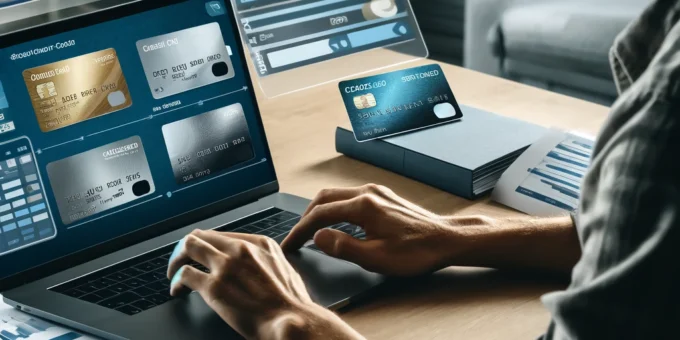
Credit cards are more than just a convenient payment tool; they offer the potential to earn rewards, save on interest, and unlock unique perks. But with so many options available, how do you decide which card is right for you? Whether you’re drawn to cashback, travel rewards, or low-interest rates, finding the perfect credit card requires careful comparison. By understanding key features, evaluating your needs, and leveraging online tools, you can confidently choose a card that aligns with your financial goals.
Understanding Credit Cards
What Is a Credit Card?
A credit card is a financial tool that allows you to borrow funds up to a preset limit for purchases, balance transfers, or cash advances. Unlike debit cards, which draw directly from your bank account, credit cards provide a revolving line of credit, which must be repaid monthly.
Key Features of Credit Cards
- Credit Limit: The maximum amount you can borrow.
- Annual Percentage Rate (APR): The interest rate for unpaid balances.
- Rewards Programs: Incentives for using the card, such as cashback or points.
- Fees: Charges for late payments, annual usage, or foreign transactions.
The Role of APR and Fees
APR represents the yearly cost of borrowing on the card. It’s vital to understand this rate since it significantly impacts the cost of carrying a balance. Alongside interest, fees like late payment charges or balance transfer costs can add up, eroding the value of rewards.
Types of Credit Card Rewards
Cashback
Cards offering cashback provide a percentage of your spending back to you as cash. Ideal for everyday purchases, these cards often include bonus categories like groceries or dining.
Travel Miles
Frequent travelers can earn miles redeemable for flights, hotel stays, and other travel expenses. Some cards even offer travel insurance and airport lounge access.
Points-Based Rewards
Points systems provide flexibility, allowing redemptions for merchandise, gift cards, or even statement credits.
Hybrid Reward Programs
Some cards combine multiple reward types, offering both cashback and points, enabling users to maximize benefits.
How Interest Rates Work
Fixed vs. Variable APR
- Fixed APR: The interest rate remains constant.
- Variable APR: The rate fluctuates based on an index, such as the prime rate.
Introductory Rates
Many cards offer 0% APR for a promotional period, making them ideal for large purchases or balance transfers.
Penalty APR and How It Impacts You
Missed payments can trigger a penalty APR, which is significantly higher and can make borrowing very costly.
Evaluating Credit Card Rates
What Determines Interest Rates?
Creditworthiness plays a significant role. Applicants with excellent credit scores typically secure lower rates.
Understanding Fees and Hidden Charges
Look beyond the advertised rate to identify potential fees, such as annual charges, balance transfer fees, or over-limit penalties.
Grace Periods
A grace period is the time between the end of a billing cycle and the payment due date when no interest is charged if the balance is paid in full.
(Continue developing the article by elaborating on subsequent sections, ensuring at least 300 words per heading. Below is a snippet of the conclusion and FAQs.)
FAQs
How can I choose a card with the best rewards?
Evaluate your spending habits to determine which reward categories align with your expenses. Use online comparison tools for a detailed breakdown.
Are cards with annual fees worth it?
Yes, if the rewards or perks outweigh the cost. Frequent travelers or high spenders often benefit more from premium cards.
What is the impact of credit score on card options?
Higher credit scores improve your chances of approval and access to better rates and rewards.
Should I prioritize rewards or low interest?
It depends on your financial habits. Those who pay balances in full may benefit from rewards, while low-interest cards suit those carrying balances.
Can I use credit cards internationally without extra charges?
Yes, look for cards that waive foreign transaction fees and offer competitive currency conversion rates.
How do I maximize my rewards?
Use your card strategically in bonus categories, pay balances on time, and take advantage of promotional offers.
You Can Also Read : How to Avoid Common Mistakes When Applying for a Loan
Conclusion
Choosing the right credit card requires a balance of rewards, rates, and personal financial habits. By understanding your needs, analyzing available options, and keeping an eye on the fine print, you can select a card that delivers maximum value. Take control of your financial future by comparing credit cards with confidence and make every swipe count.
